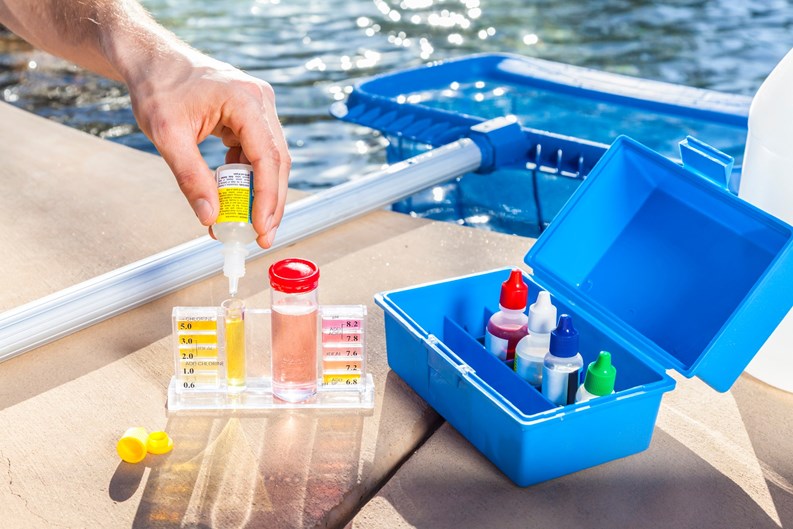As states and localities ease or lift stay-at-home orders, board members and community managers are determining when and how to safely open or reopen pools in their homeowners associations.Associations should follow state and federal orders when considering whether they can and should open the community pool. “The real issue is compliance,” says Scott Carpenter, a shareholder and managing partner at Carpenter Hazlewood in Phoenix, Ariz., and a fellow in the Community Association Institute (CAI)’s College of Community Association Lawyers (CCAL). “Can associations do it in a way where they comply with federal and states restrictions and follow public health recommendations?”
For example, Texas Gov. Greg Abbott has allowed pools to open but adjustments must be made to the maximum occupancy, explains Carpenter. “On the other hand, some associations are seriously contemplating not opening their pool at all this season because it may be impossible to shift the liability risk,” he adds.
The Centers for Disease Control and Prevention say there’s is no evidence that the coronavirus that causes COVID-19 can spread through the water in pools, hot tubs, spas, or water play areas. Proper operation and maintenance (including disinfecting with chlorine and bromine) of these facilities should inactivate the coronavirus in the water.
Ben Basch, chief development officer at American Pools in New Jersey, echoes the CDC’s guidance. “There is no risk of transmission through water if pools are well-maintained. That’s why we sanitize the water all the time.”
Wendy W. Taylor, CMCA, AMS, LSM, PCAM, general manager at South Riding Proprietary Inc., in South Riding, Virginia, is following Virginia’s guidelines for opening her community’s pools.
“We are going to use pool passes to regulate how many people come in,” she says. For added safety, “there will be two-hour appointments where only 50 people can use the pool at one time. After that period, all residents will leave the area and the pool will be cleaned.” Reducing pool hours to allow for extra time to clean the pool is another option, says Taylor. “We are marking the waiting line to enter into the pool in 6-foot increments to comply with social distancing, and removing at least half of our pool furniture,” she adds.
For the 2020 swim season, experts also recommend implementing a no guest policy, as well as eliminating pool parties, games, swim lessons, swim meets, and water aerobics. This is also a good opportunity to revisit employing a lifeguard, according to Carpenter. “Keep in mind that watching the pool should take 100% of a lifeguard’s attention,” he says. Depending on your association, lifeguards can play some role in making sure residents practice social distancing. However, Carpenter adds that lifeguards “can’t be checking passes and monitoring swimmers at the same time.”
Any insurance policies that may exclude claims related to viruses should be reviewed by the board and community manager. “Mostly, general liability insurance and D&O policies would be the obvious policies to look for the exclusions from coverage,” says Carpenter.
Does an association have to open their pool if a stay-at-home order is eased? Some state orders will explicitly lift the closing of pools. However, this is ultimately a board decision once the ban is lifted. It is important for boards to weigh the public health and safety risks of residents when opening pools.
It’s important to communicate these changes with residents in a timely manner. Taylor issues emails blasts, social media, and website updates to make sure residents have the most up-to-date information on her association’s new pool procedures.
CAI has developed guidance, sample forms and documents, and FAQs on the COVID-19 outbreak. Check back regularly for updates, additions, and other useful information.
This advisory is offered as a service to readers of The Cooperator and is intended as an informal summary of certain recent legislation, cases, rulings and other developments. This advisory does not constitute legal advice or a legal opinion and is not an adequate substitute for the advice of counsel.






Leave a Comment